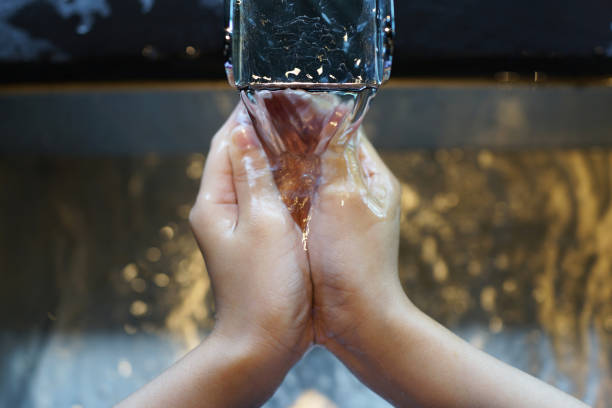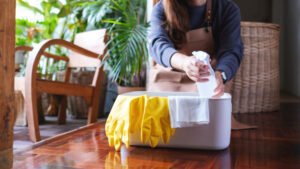In our daily lives, we forget how important it is to stay away from germs, especially in a place as private as the bathroom. But keeping your bathroom clean and germ-free is very important to maintain good health and hygiene. Let's talk about some great ways to keep your bathroom germ-free and protect your health and the health of those around you.
How do you find out where bacteria come from?
Before we discuss how to clean, it's important to understand where germs typically hide in your bathroom. Bacteria usually comes from:
- Toilets, chairs and other surfaces around the toilet are great places for bacteria and viruses to grow.
- Sinks and faucets: Water and organic matter can build up around sinks and faucets, making them a perfect place for microorganisms to grow.
- Floors and other surfaces can be havens for pathogens, especially in homes with pets or young children.
1. Disinfect items
It is important to use proper cleaning and disinfection methods in your bathroom to effectively remove germs. Some important things to consider are:
2. Right cleaning products
Choose a disinfectant that can kill many different types of pathogens, such as viruses and bacteria. Look for products that are EPA-approved for cleaning bathroom surfaces.
How often do you clean
To keep your bathroom germ-free, regular cleaning is important. Develop a cleaning schedule that includes weekly deep cleaning and disinfection of surfaces that people touch every day.
3. Perform daily maintenance
In addition to cleaning your bathroom regularly, practicing good hygiene daily can also help prevent bacteria from building up in your bathroom. Check out these suggestions:
- Hand hygiene: Tell people to wash their hands often with soap and water, especially after using the toilet.
- How to properly dispose of waste: To stop the spread of germs, place used tissues and hygiene products in the appropriate bin.
- Ventilation: Make sure the bathroom has adequate air circulation to keep humidity down and stop the growth of microorganisms.
4. Shared bathroom hygiene
When people share bathrooms, such as in offices or public buildings, it is even more important to keep them clean. Institute strict hygiene rules and ensure there are enough supplies, such as hand sanitizer and disinfectant wipes, to ensure people adhere to them.
5. Bacterial hotspots
To prevent bacterial growth, pay special attention to certain areas of your bathroom. Pay attention to cleaning and sterilizing the following areas:
Toilets and seats should be cleaned and disinfected with toilet bowl cleaners and disinfectants.
- Sinks and faucets: Use a disinfectant to clean faucets and sinks.
- Floors and surfaces: Use an all-purpose cleaner to wipe down frequently touched floors and other surfaces.
6. Public bathrooms
When using public bathrooms, keeping them clean can help prevent the spread of germs. Encourage people to wash their hands thoroughly and post signs to remind people to stay clean.
7. Family member
Make your family or employees more aware of the importance of keeping your bathroom clean. Hold training sessions on how to clean properly and hold people accountable for keeping the area germ-free.
8. Technology to stay hygienic
Technology can have a big impact on how clean your bathroom is. By installing touchless fixtures, such as self-flushing toilets and sensor-controlled taps, you can avoid touching surfaces as much as possible.
FAQs
1. How often should I clean my bathroom to keep it bacteria-free?
Try to clean surfaces that people touch every day and do a deep cleaning at least once a week.
2. Can natural cleaning products keep your bathroom germ-free?
Natural cleaning products can help, but EPA-approved disinfectants are better at killing harmful pathogens.
3. How do I ensure that everyone stays clean in a shared bathroom?
There should be plenty of soap, hand sanitizer, and disinfectant wipes available, and signs should remind people to keep things clean.
4. Should I be concerned about germs in public bathrooms?
Pathogens can live in public bathrooms, so it's important to practice good hygiene, such as washing hands and not touching surfaces.
5. How do you keep your bathroom germ-free before cleaning it again?
To prevent the spread of germs during cleaning, encourage people to wash their hands frequently, dispose of trash properly, and ensure good air circulation.
Conclusion
Maintaining a germ-free bathroom is important for your own health and the health of the entire community. By using the right cleaning methods, practicing good hygiene every day and doing the most of technology where possible, you can make the world a safer and healthier place for yourself and others.



